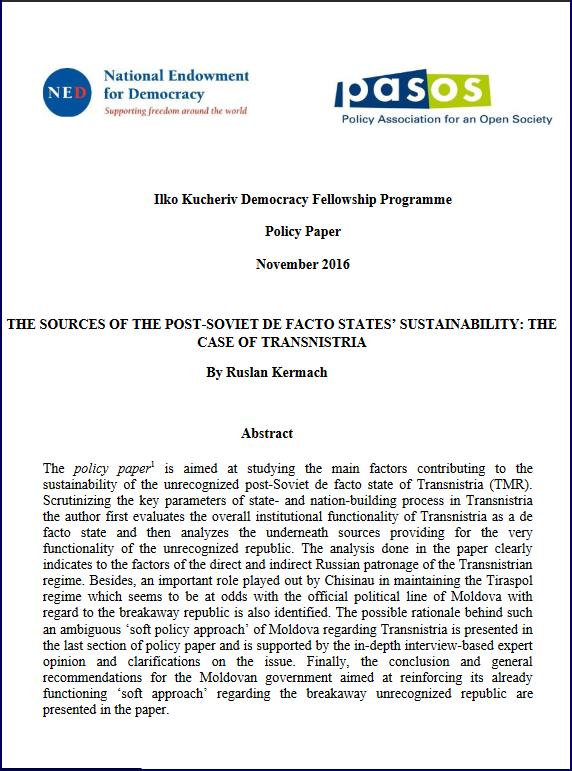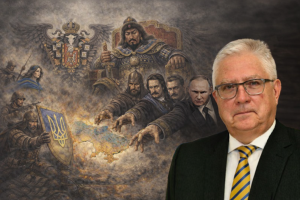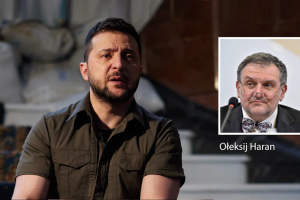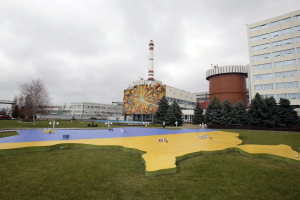THE SOURCES OF THE POST-SOVIET DE FACTO STATES’ SUSTAINABILITY: THE CASE OF TRANSNISTRIA
 Policy Paper
Policy Paper
By Ruslan Kermach
Abstract
The policy paper is aimed at studying the main factors contributing to the sustainability of the unrecognized post-Soviet de facto state of Transnistria (TMR). Scrutinizing the key parameters of state- and nation-building process in Transnistria the author first evaluates the overall institutional functionality of Transnistria as a de facto state and then analyzes the underneath sources providing for the very functionality of the unrecognized republic. The analysis done in the paper clearly indicates to the factors of the direct and indirect Russian patronage of the Transnistrian regime. Besides, an important role played out by Chisinau in maintaining the Tiraspol regime which seems to be at odds with the official political line of Moldova with regard to the breakaway republic is also identified. The possible rationale behind such an ambiguous ‘soft policy approach’ of Moldova regarding Transnistria is presented in the last section of policy paper and is supported by the in-depth interview-based expert opinion and clarifications on the issue. Finally, the conclusion and general recommendations for the Moldovan government aimed at reinforcing its already functioning ‘soft approach’ regarding the breakaway unrecognized republic are presented in the paper.








